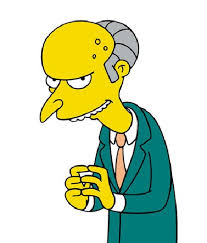In 2012 I visited Verdun, a World War I battlefield site in France. It was a bitter cold day, the kind when the damp and chill cut right through your layers. We hopped out of the car, walked a few feet into the woods, and found shallow scars still outlining the trenches where nearly 100 years previously, young boys and men huddled, trying to get warm, to stay dry and alive.
I shivered until I couldn’t take the cold anymore (a whole five minutes maybe), and then we climbed back into our car, turned up the heat, and drove away, something those boys, many barely older than my son, couldn’t do. Many died in those bone-cold, wet holes in the ground.
I was reminded of Verdun on Christmas Eve, when the guitarist at my church played and sang a moving song by John McCutcheon called Christmas in the Trenches. According to the stories, on Christmas of 1914, German and English soldiers called a unofficial truce. They came up out of the trenches to play football, sing carols, share treats, show family photos, and hang out. The next day they had to return to killing each other. Wikipedia says this wasn’t even a singular event. During the first two years of the war, enemy soldiers called ceasefires and fraternized regularly. After that, what with poison gas and all, the war became too bitter, enmities too, er, entrenched.
However, after the Christmas ceasefire, Francis Tolliver, McCutcheon’s young soldier, has to ask himself, “Whose family have I fixed within my sights?” But he can’t help that. He’s a soldier in wartime, and that’s his tragedy. He has to remain in the trench to stay alive.
“Lest we forget” has become not much more than a cliche. A lot of people say it meaning, let’s honor the sacrifices of our soldiers. I’m all for that. But to me, McCutcheon’s song reveals the more important meaning: Lest we forget the essential humanity of our enemy.
We seem to be doing a lot of that these days.The list of horrifying daily events is endless and heartbreaking. And so much of it stems from the facile vilifying of those who vote/think//pray/dress/love differently than we do.
We don’t just have big Enemies of the WWI kind. We have casual enemies, many and sundry. I can list some of mine: Climate change deniers. Those guys who carry assault weapons into stores and restaurants. Anyone who uses the word feminazi seriously. Westboro Baptist Church. Rush Limbaugh.
And that’s fine, I suppose. Or is it?
It’s my prerogative to disagree vehemently with people for whatever I choose. But is it fine to vilify them? Ever? Unless someone has acted heinously, done something far beyond posting things I find despicable on Facebook, no.
No, it’s not fine at all.
Because “enemy” implies a lot of things. It screams “less worthy”. Less worthy of what? Of respect? Of rights? Where does that stop? What does it lead to?
It leads to turning a casual enemy into a capital E Enemy. To forgetting that those who watch the “wrong” news channel, who voted for the “wrong” candidates, who pray differently or don’t pray at all, who march for causes we don’t like, are just us in different skin.
It leads to blindness. To not looking all the way down the rifle sights, past the religious garb/uniform/protest sign/bumper sticker to the humanity behind it. To not seeing our own selves reflected back in every single face, including those with whom we disagree.
It leads both to terrorist killings of cartoonists and to deciding all Muslims are terrorists. It leads to shooting a 12-year-old for carrying a toy gun and to killing cops point blank.

The Washington Post recently published an article called Top 10 Reasons American Politics are so Broken. I think we all know this country is more polarized and less accepting of the other side than it’s been since probably the Civil War. We don’t just disagree with our neighbor’s politics. We dislike our neighbor for holding those views. And in fact, we may not even be neighbors with those who hold opposing views because so many of us live in trenches where we don’t even meet “the other.”
But unlike Francis Tolliver, we have a choice. We can come up out of our trenches any old time we like.
And we must. Because, you know, hate is too easy down there.
It’s a whole lot easier to vilify Rush Limbaugh, whom I’ve never met, than to hate my Rush-quoting next door neighbor who helped fix my flat tire in the cold. When you stay in your trench, whomever your flavor of enemy – the racist, gay-bashing Fox newscaster, the hippy Occupy protester, the uniformed cop, the black kid in the hoodie, the CEO, the mom on foodstamps, the hijab-wearing Muslim, the atheist – can all too easily become your Enemy. When you have never come up out of the trench to share a pack of gum.
Lest we forget. Lest we forget to see the essential humanity of those in our rifle sights. Lest we forget that “on each end of the rife, we’re the same.”


